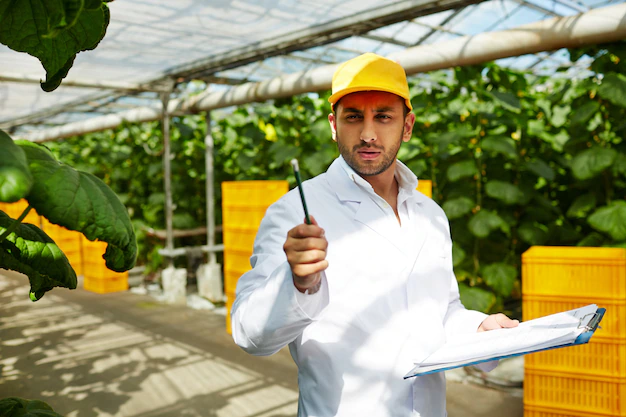- Precision Agriculture Specialist Role: A Precision Agriculture Specialist is responsible for implementing and optimizing precision agriculture techniques and technologies on farms. They work closely with farmers to enhance crop productivity, minimize resource wastage, and improve overall farm efficiency.
- Expertise in Technology: Precision Agriculture Specialists have a deep understanding of agricultural technologies, including GPS, GIS, remote sensing, drones, data analytics, and automation systems. They know how to integrate these technologies into farming operations effectively.
- Data Analysis and Interpretation: These specialists possess strong analytical skills to collect, manage, and analyze agricultural data. They interpret data to provide actionable insights to farmers, helping them make informed decisions about crop management, irrigation, fertilization, and pest control.
- Farm Mapping and Geospatial Analysis: Precision Agriculture Specialists utilize geospatial data and mapping techniques to create detailed maps of farms. They use this information to identify variations in soil composition, moisture levels, and other environmental factors, enabling farmers to apply resources precisely where needed.
- Crop Monitoring and Remote Sensing: They employ remote sensing technologies such as satellites, drones, and sensors to monitor crop health, growth patterns, and detect potential issues like pest infestation or nutrient deficiencies. They use this information to recommend appropriate interventions.
- Precision Farming Equipment: Precision Agriculture Specialists are familiar with advanced farming equipment and machinery used in precision agriculture, such as variable rate applicators, automated irrigation systems, and yield monitors. They assist farmers in selecting, installing, and calibrating these devices.
- Communication and Education: These specialists play a crucial role in educating farmers about the benefits and implementation of precision agriculture techniques. They communicate complex concepts in a clear and accessible manner and provide training to farmers and farmworkers on using technology effectively.
- Environmental Sustainability: Precision Agriculture Specialists are well-versed in sustainable agricultural practices. They help farmers reduce environmental impact by optimizing resource usage, minimizing chemical inputs, and adopting conservation practices that promote soil health and water conservation.
- Continual Learning: The field of precision agriculture is rapidly evolving, with new technologies and techniques emerging regularly. Precision Agriculture Specialists stay updated with the latest advancements, attend workshops and conferences, and engage in ongoing learning to provide the most up-to-date recommendations to farmers.
- Collaboration and Teamwork: Precision Agriculture Specialists work closely with farmers, agronomists, agricultural engineers, and other professionals in the agriculture industry. They collaborate to develop customized precision agriculture plans, exchange knowledge, and ensure the successful implementation of precision farming practices.
Remember that the specific responsibilities and qualifications may vary depending on the organization and location, but these points provide a general overview of what you can expect in a Precision Agriculture Specialist job.
Join 'Farmers Mag' WhatsApp Channel
Get the latest Farming news and tips delivered straight to your WhatsApp
CLICK HERE TO JOIN






